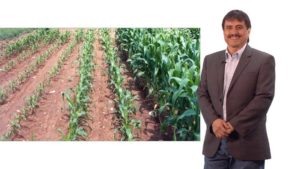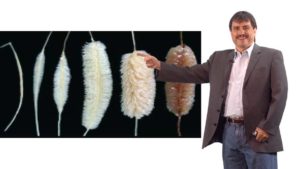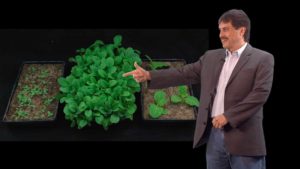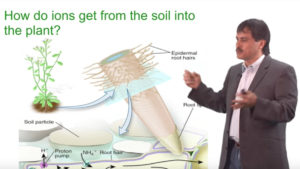Luis Herrera-Estrella is a Howard Hughes Medical Institute Senior International Research Scholar and Chief of the National Laboratory of Genomics for Biodiversity, Center for Research and Advanced Studies of the National Polytechnic Institute (Cinvestav), Irapuato, Mexico. Herrera-Estrella studied biochemical engineering as an undergraduate student and received his MSc in genetics and molecular biology from Cinvestav. He completed his PhD in plant molecular biology from the State University of Ghent, Belgium where he also conducted postdoctoral research.
Herrera-Estrella’s lab researches how plants adapt to grow in conditions of low phosphorous availability. They have identified genes involved in changing root architecture, one of the responses to low soil phosphorous. In addition, his lab has engineered plants that can metabolize phosphite, rather than phosphate; this has the potential for major environmental and economic impacts, as discussed in his iBioSeminar.
Herrera-Estrella has made important contributions to the field of plant molecular biology, particularly the development of methods for gene transfer and regulation. His many contributions have been recognized with numerous awards including the 2002 National Science Prize from the Government of Mexico, the 2007 Trieste Science Prize and the 2008 American Society of Plant Biologists Leadership in Science Public Service Award. Herrera-Estrella is an elected member of the Latin American Academy of Sciences, the Mexican Academy of Sciences, the Third World Academy of Sciences and a foreign member of the National Academy of Sciences of the United States.








